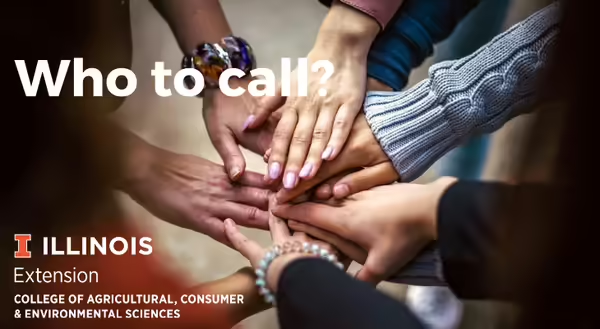
As we move through our lives, different challenges and needs rise. In my own family, our needs have changed over time. When my children were young, I was concerned with finding quality childcare and used clothing and toys. As family members aged, we needed home delivery of meals, medical care support, and transportation services. Sometimes we can handle these challenges on our own, and sometimes community resources are helpful. It’s not until a specific, personal need comes up that we tend to ask, “Who do I call to get help with fill-in-the-blank?”
Luckily, we have a local resource that can help: 211. When you call 211, you reach a knowledgeable specialist who can help you find services in your local community, 24/7. The people you talk to at 211 don’t provide these services, but they can point you to the people and organizations that do!
Call 211 to find out about the following types of services:
- Basic needs like food banks, rent, and utility assistance;
- Physical and mental health resources such as counseling, drug intervention, and health insurance programs;
- Employment support including job training;
- Support for older people and persons with disabilities such as home health care and transportation; and
- Support for children and families, including childcare and tutoring programs.
All calls to 211 are free, anonymous, and confidential. You can search the 2-1-1 online database for programs too.
Along with local community resources, you or others in your family may benefit from state and federal government resources. The government provides assistance through benefit programs that serve essential purposes, such as job training, nutritional assistance, education, health care, and other needs.
The Application for Benefits Eligibility (ABE) website helps people apply for and manage healthcare, food, and cash assistance benefits. By using the ABE Screener - Am I Eligible tool, within minutes, you can determine whether you are eligible for Illinois’ services.
Have you ever wondered if you qualify for federal benefits? The website, Benefits.gov! On the website, click on the start button for the Benefit Finder. It will prompt you to enter some basic information about yourself and the types of services in which you are interested. Then you will answer more questions that are specific so that a targeted list of resources can be prepared for you. With this customized list, you can access many useful informational resources and explore your eligibility for federal benefits.
USA government agencies produce a wealth of high quality and educational information about financial and consumer topics. For example, the Consumer Financial Protection Bureau has excellent resources about repaying student loans and buying your first home.
Another two of my favorite websites are MyMoney.gov and USA.gov . Both of these websites list numerous government resources (everything from information to aid) by categories. MyMoney.gov focuses on financial education; in contrast, USA.gov is broader and has links to many resources. I recommend you bookmark both of these websites.
Of course, I also recommend University of Illinois Extension’s websites and resources, for unbiased, research-based information. To keep up-to-date on new information, follow the Plan Well, Retire Well.
A walk in the park, a quiet evening reading a library book, and food from a food pantry – what do these all have in common? All of these examples use community resources which can add value to our lives. Not only do these resources improve our lives, we can use them without spending much money or maybe for free!
Image by Bob Dmyt from Pixabay.